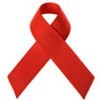 About a year ago, shortly after I turned 65, I began to notice that people on the subway were regularly offering me their seats. Along with senior discounts, it took some of the sting out of aging. The arthritis, aches and pains, high blood pressure, and little skin cancers that keep showing up--not so much.
About a year ago, shortly after I turned 65, I began to notice that people on the subway were regularly offering me their seats. Along with senior discounts, it took some of the sting out of aging. The arthritis, aches and pains, high blood pressure, and little skin cancers that keep showing up--not so much. I can’t complain, though. Everything considered, I spend much of each day happily appreciating my good fortune. I have a job, a girlfriend, a home, good friends. I am well aware that I have escaped the fate of many of my friends who, at much younger ages, died during the early days of the AIDS epidemic.
And I have HIV-positive friends who take more daily pills at age 40 than the three I take every day. I am HIV negative and aging at pretty much the standard rate--not accelerated by a virus (though 14 plus years of prison did nothing to extend my longevity).
There is another downside of aging, however, and it too makes me think about HIV: the aspect of aging that includes being disrespected or ignored in this youth-crazed society. This carries echoes of HIV stigma.
I feel exposed. My frailties have become visible, with liver spots, a tremor in one hand, wrinkles and thinning hair (it’s been grey for ages). I always feel that people living with HIV--even without any visible sign, like facial wasting--are more exposed than negative people, because when you tell someone you’re positive, they want to know (even if they’re too polite to ask) how you got it.
Then they possess an intimate piece of your past, your personal life. Meanwhile, you are fairly certain to know less about them and their history.
I also have become aware that when people look past me or through me, when they treat me with disrespect or impatience (even if I’m moving just as fast as they are), it is their fear speaking. I concluded this when I realized that the people most apt to show, by body language or otherwise, that they find my existence troublesome are not the twenty-somethings, but those inching towards their own middle age.
In their eyes, I represent their future--and even though I don’t really feel old, to a 40-year-old, it looks scary. Younger people might still believe (as I did at their age) that they will never grow old. Those in their 40s, though, see it coming. My wrinkles alone are enough to make someone about to enter middle age run screaming for the moisturizer.
Imperfect old broad that I am, I do it too. I find myself impatient and annoyed when I’m behind a slow-moving older person, maybe one leaning unsteadily on a walker. I look at the cane or walker and wonder subconsciously whether that item is in my future. Being anything less than completely independent and able to scale tall buildings in a single bound is terrifying. The more real it becomes, the more I want to reject it.
There are a zillion faces of HIV stigma, and this sort of fear is only one. But when people shy away from positive people, I think at least in part they are avoiding thoughts of their own vulnerability--not to mention the reminder that “sex, drugs and rock ’n roll” are not as safe as we once thought.
But maybe the best conclusion to draw is that yes, we are one another’s future. Good, bad or ugly, we either share it or else we face it alone.







9 Comments
9 Comments